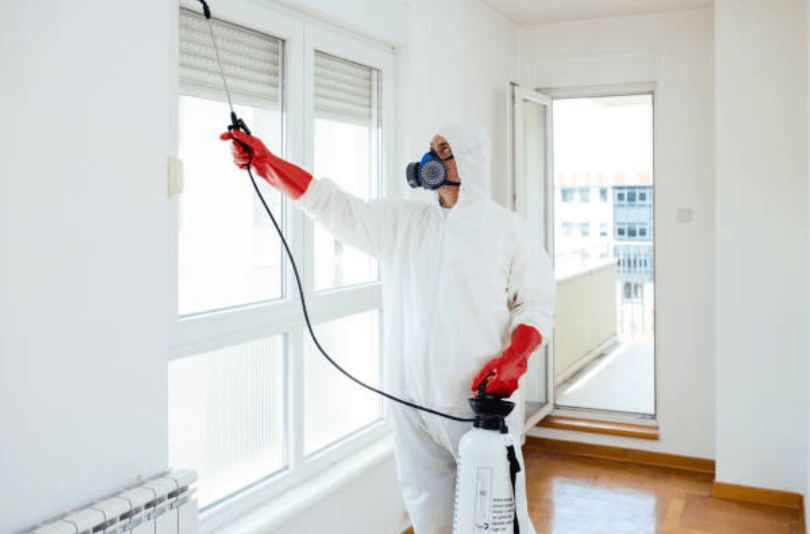Singapore, known for its lush greenery and impeccable cleanliness, is not immune to pest infestations. From ants and cockroaches to rodents and termites, these unwanted guests can invade your home, posing health risks and causing property damage.
In this article, we delve into the importance of pest control in Singapore and explore various methods to safeguard your home against these pesky intruders.
Understanding the Importance of Pest Control
Pest control is a critical aspect of maintaining a healthy and hygienic living environment. Whether in residential, commercial, or industrial settings, pests pose numerous threats to human health, property integrity, and overall well-being.
Understanding the importance of pest control is essential for effectively managing infestations and preventing their detrimental effects.
1. Preserving Health and Hygiene
Pests such as cockroaches, rats, and mosquitoes carry diseases that can jeopardize your family’s health. Cockroaches, for instance, can spread pathogens like Salmonella and E. coli, while rodents may transmit leptospirosis and hantavirus.
Implementing effective pest control measures helps mitigate the risk of illnesses associated with these pests, ensuring a safe and hygienic living environment.
2. Protecting Property and Infrastructure
Pests not only pose health hazards but also inflict damage to property and infrastructure. Termites, often referred to as “silent destroyers,” feed on wooden structures, causing extensive damage that can compromise the structural integrity of buildings.
Additionally, rodents gnaw on electrical wires, posing a fire hazard, while ants can infiltrate food storage areas, contaminating supplies. By investing in pest control services, Singapore homeowners can safeguard their properties against costly repairs and structural deterioration.
Common Pests in Singapore
Singapore’s tropical climate and urban landscape provide ideal conditions for a variety of pests to thrive. From common household nuisances to potential vectors of disease, understanding the types of pests prevalent in Singapore is essential for effective pest management strategies.
In this section, we explore some of the most common pests encountered in Singaporean households and their associated challenges.
1. Ants
Ants are ubiquitous in Singapore, with species like the odorous house ant and the notorious red imported fire ant causing nuisance indoors and outdoors. These tiny pests forage for food, leaving behind pheromone trails that attract more ants to the area.
Ant infestations can be challenging to eradicate without professional intervention, as DIY methods often fail to address the root cause of the problem.
2. Cockroaches
Cockroaches thrive in warm and humid environments, making Singapore an ideal habitat for these resilient pests. Besides being unsightly, cockroaches carry allergens and disease-causing bacteria, triggering asthma and allergic reactions in sensitive individuals.
Effective cockroach control involves targeting their hiding spots, such as cracks, crevices, and kitchen cabinets, with baiting and insecticide treatments.
3. Mosquitoes
Mosquito-borne diseases like dengue fever and Zika virus pose significant public health concerns in Singapore. With its tropical climate and abundant breeding sites, the city-state is susceptible to mosquito infestations, particularly during the rainy season.
Preventive measures such as eliminating stagnant water sources and using insect repellents can help reduce mosquito populations and minimize the risk of disease transmission.
4. Rodents
Rats and mice are opportunistic pests that exploit human habitats for food and shelter. In addition to spreading diseases through their droppings and urine, rodents cause structural damage by gnawing on wires, insulation, and building materials.
Implementing rodent-proofing measures such as sealing entry points and maintaining cleanliness can deter these pests from establishing nests in residential areas.
Effective Pest Control Strategies
Implementing effective pest control strategies is essential for managing infestations and preventing the proliferation of pests in residential and commercial settings.
From proactive measures to targeted interventions, a comprehensive approach to pest management is crucial for maintaining a pest-free environment. In this section, we explore some key strategies for controlling pests in Singapore.
1. Integrated Pest Management (IPM)
IPM is a holistic approach to pest control that emphasizes prevention, monitoring, and environmentally friendly interventions. By combining multiple tactics such as sanitation, habitat modification, and targeted pesticide applications, IPM minimizes reliance on chemical treatments while effectively managing pest populations.
Engaging certified pest management professionals ensures the proper implementation of IPM strategies tailored to the specific needs of your home.
2. Regular Inspections
Routine inspections conducted by licensed pest technicians are crucial for the early detection of pest infestations and potential entry points. During inspections, technicians assess the extent of pest activity, identify conducive conditions, and recommend appropriate control measures.
By addressing pest issues promptly, homeowners can prevent minor infestations from escalating into major problems that require extensive remediation.
3. Pest-Proofing Measures
Sealing entry points and implementing physical barriers are essential for preventing pests from infiltrating your home. Common entry points for pests include gaps around doors and windows, cracks in foundations, and utility penetrations.
By sealing these openings with caulk, weatherstripping, or wire mesh, homeowners can effectively exclude pests and minimize the need for chemical interventions.
4. Targeted Treatments
When chemical treatments are necessary, it’s essential to use products that are safe for humans, pets, and the environment. Pest control professionals employ targeted treatments that minimize pesticide exposure while maximizing effectiveness against specific pest species.
Moreover, adherence to label instructions and proper application techniques ensures the safe and responsible use of pesticides in residential settings.
Conclusion
In conclusion, safeguarding your home against pests is essential for maintaining a safe, healthy, and hygienic living environment in Singapore. By understanding the importance of pest control and implementing effective strategies such as integrated pest management, regular inspections, pest-proofing measures, and targeted treatments, homeowners can protect their properties from the detrimental effects of pest infestations.
Partnering with certified pest management professionals ensures the proper identification, prevention, and remediation of pest problems, promoting peace of mind and security for you and your family. Stay vigilant, stay proactive, and keep your home safe and secure from pests.



